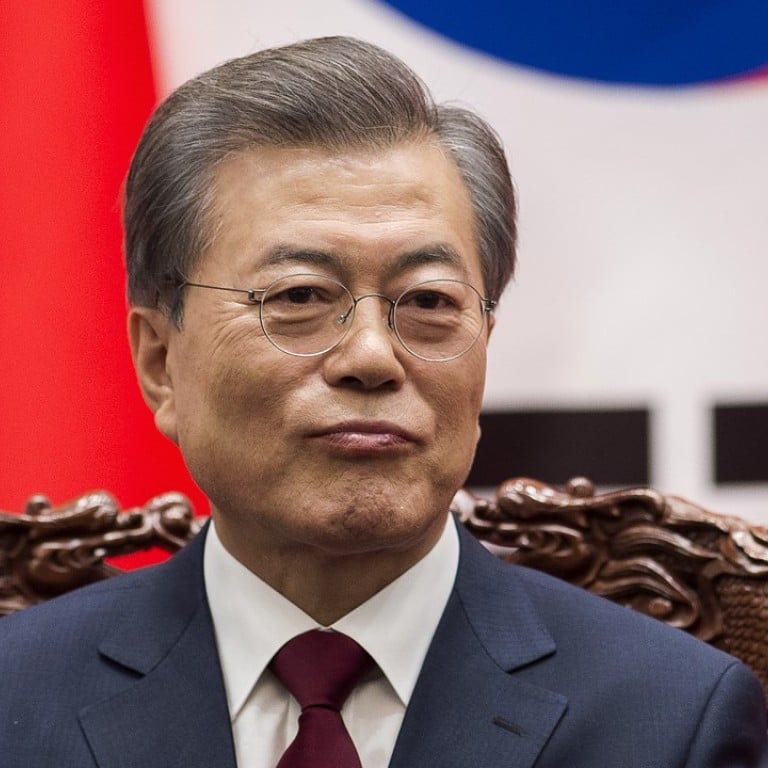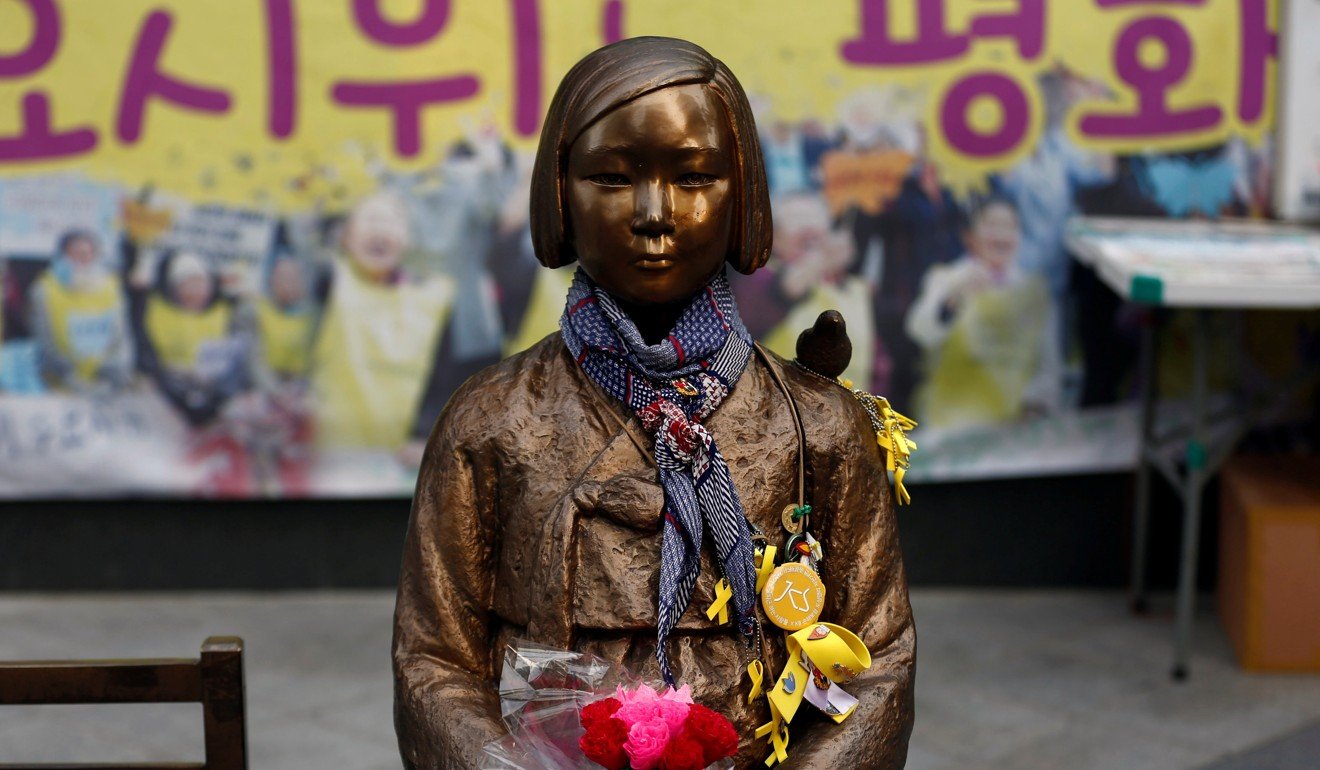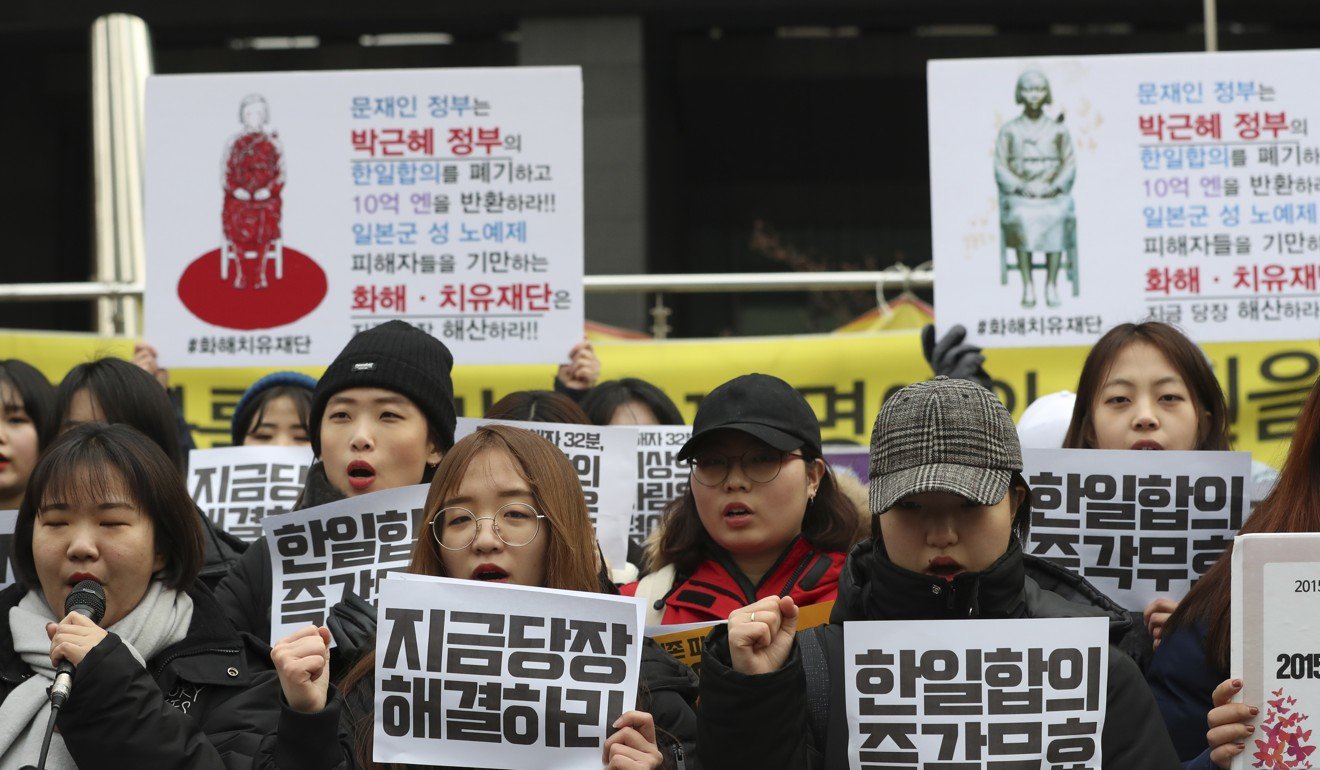
Japan says ‘no alternative’ to ‘comfort women’ deal after South Korean president dismisses it
Under the accord, endorsed by Shinzo Abe and Moon’s conservative predecessor, Park Geun-hye, Japan apologised to surviving victims and provided 1 billion yen to a welfare fund
Japan and South Korea are set on a diplomatic collision course after South Korean President Moon Jae-in dismissed as unworkable a 2015 agreement on Japan’s wartime use of sex slaves.
Tokyo responded by saying there is “no other policy option” but to maintain the deal.
Moon said in a statement on Thursday the agreement was “seriously flawed” and “cannot solve” the countries’ long-standing dispute over the “ comfort women ” – a euphemism for tens of thousands of women and girls, mostly from the Korean peninsula, who were coerced into working in Japanese military brothels before and during the second world war.
“This runs afoul of the established universal principle of the international community for settling history issues, and above all, it was a political agreement that excludes the victims themselves and citizens,” Moon said of the deal.
“Along with citizens, I, as president, make it clear again that the comfort women issue can’t be settled through this deal.”

The Japanese Foreign Ministry petitioned the South Korean embassy in Tokyo to express Japan’s concerns about Moon’s statement. A Japanese government source said Tokyo’s “position of seeking the steady implementation of the agreement is unchanging”, suggesting it plans not to agree to any further demands Seoul might make after the report.
According to the source, Japan adheres to the bilateral commitment at the time that the deal was meant to “finally and irreversibly” resolve the comfort women issue.
“If we get to the point where the South Korean government demands a rethink of the agreement, we’ll be [in a situation] where countries can’t keep their promises to one another,” a senior Japanese official said.
Moon’s comments came a day after a South Korean government task force said the agreement, in which Japan agreed to provide funds for the dwindling number of survivors, failed to take into account the former sex slaves’ feelings.
I, as president, make it clear again that the comfort women issue can’t be settled through this deal
That drew an angry response from Japanese Foreign Minister Taro Kono, who warned that bilateral ties would become “unmanageable” if Seoul failed to honour the agreement, in which both sides pledged to resolve the dispute “finally and irreversibly”.
Under the accord, endorsed by Japanese Prime Minister Shinzo Abe and Moon’s conservative predecessor, Park Geun-hye, Japan apologised to surviving victims and provided 1 billion yen (US$8.8 million) to a welfare fund. Moon, a left-leaning liberal, hinted that he was preparing to reconsider the agreement soon after he became president in May. He has said several times that the deal is not supported by the South Korean people.
The countries resolved to refrain from criticising each other over the issue at international forums, and South Korea agreed to “make efforts” to secure the removal of statues honouring the women, including one outside the Japanese embassy in Seoul.
The South Korean task force, however, concluded that the dispute could not be “fundamentally resolved” because the victims’ demand for official compensation from Japan had been omitted from the agreement.

While it was prepared to provide money as a humanitarian gesture to help heal the women’s “psychological wounds”, Japan insists all compensation claims arising from the war were settled by a 1965 bilateral peace treaty.
Oh Tai-kyu, who heads the comfort women task force, said receiving the money did not necessarily mean the recipients supported the agreement.
“I think we should look into whether the logic holds true here that if you receive money, then you support a deal,” Oh said, according to Yonhap. “Receiving money does not mean that a crime is forgiven.”
Additional reporting by Kyodo

